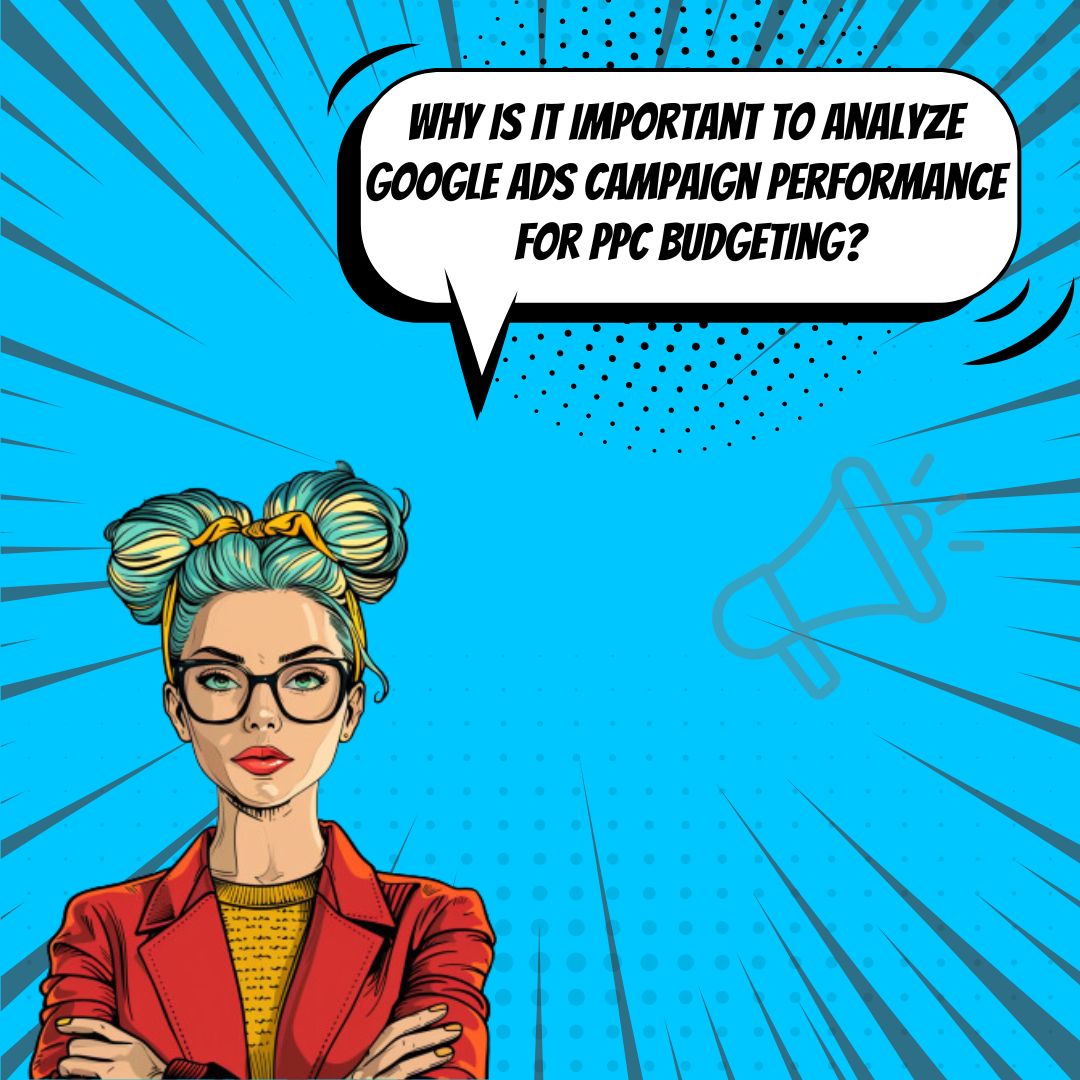Key Takeaways
✅ Understand Campaign Performance Metrics: Knowing the ropes of key metrics like CPC, conversion rates, and ROAS is vital. For instance, if your CPC is soaring, yet the conversions are flat, you might want to rethink your keywords or ad copy. Statistical insights are your roadmap to refine your approach, aiming for that perfect sweet spot of quality traffic and cost efficiency.
✅ Allocate Budget Strategically: Don't just throw money at every campaign. If Campaign A turns a $1 into $3 and Campaign B turns $1 into $5, it's time to shift gears. Regular performance reviews can lead to smart money moves, maximizing what works and cutting the fat. Remember, a dollar saved in underperforming ads is a dollar earned in your most valuable campaigns.
✅ Monitor and Optimize Regularly: The world of ads isn't set-it-and-forget-it. Continuous vigilance lets you pivot quickly and harness emerging trends. By regularly tweaking your ads and adjusting your budget, you respond to real-world results, leading to a leaner and meaner PPC strategy that's always one step ahead.

Introduction
Are you ready to turn the data deluge from your Google Ads campaigns into a torrent of insights and better budgeting decisions? Gaining Insights from Google Ads Campaign Performance for PPC Budgeting isn't just about crunching numbers; it's about crafting stories of success and learning from tales of caution. How do you ensure that every penny of your PPC budget isn't just spent, but invested?
Navigating the arcane art of Understanding Google Ads Campaign Performance could be the difference between a trickle and a flood of profits. In this article, we don't just scratch the surface; we dive deep into strategies that siphon the best out of your ad spend. From cutting-edge tactics like Google Data Studio dashboards to Analyzing Competitors' Strategies and managing your cash flow through Smart Bidding, we've got the treasure map to your PPC gold.
But there's more. As we carve out a path through the thicket of Setting Up and Managing Google Ads Budgets, we illuminate the ways to optimize ad spend, ensuring your campaigns are as frugal as they are fruitful. And for the grand finale, we spill the beans on Advanced Budget Allocation Strategies that marry innovation with efficiency, setting your campaigns alight with the fires of success.
Prepare for a journey that promises not just a bird's-eye view but the wisdom to harness the winds of digital marketing. Buckle up, as we're about to uncover a trove of actionable insights and groundbreaking information that could revolutionize your approach to PPC budgeting.

Top Statistics
| Statistic | Insight |
|---|---|
| Market Share: Google leads the way with 81.95% of the market share globally and 93.51% in the UK. | This dominance suggests that Google Ads can provide unparalleled reach for advertisers aiming to connect with a large audience. |
| Conversion Rate: Paid search visits are 35% more likely to convert compared to organic search, making PPC a valuable strategy. | The high conversion rate strongly supports the case for businesses to allocate budgets towards PPC to boost their sales funnel. |
| Purchase Intent: 65% of people click on Google ads when looking to make a purchase, making targeted ads crucial for conversions. | This statistic underscores the importance of well-crafted Google Ads that meet the high intent of users ready to buy. |
| Budget Allocation: 39% of advertisers' budgets go to paid search, making it the top digital channel. | Investors prioritize paid search more than any other channel, signalling its critical role in digital marketing efforts. |
| Budget Increase: 64% of brands are planning to increase their PPC budget in the next 12 months, indicating a growing investment in PPC. | Advertisers are not only recognizing the value of PPC but also increasing their investment, which is a trend to watch and learn from. |
Understanding Google Ads Campaign Performance
When you're diving into the world of Google Ads, knowing which Key Performance Indicators (KPIs) to track can be the difference between a flourishing campaign and a floundering one. Think of KPIs like clues on a treasure map; follow them closely, and they could lead you to gold. Click-Through Rate (CTR) and Conversion Rate are fundamental metrics that tell you a lot about the appeal and effectiveness of your ads. But don't overlook Cost-Per-Click (CPC) and Quality Score; these can provide insight into how much you're paying for clicks and the relevance of your ads to your audience, respectively.

To keep an eagle eye on these indicators, you can use tools like Google Data Studio to craft a real-time dashboard. This is a game-changer. It's like having a high-tech control panel for your campaigns, giving you the power to make informed decisions swiftly. Plus, integrating data from customer relationship management (CRM) platforms like HubSpot and Salesforce, along with payment systems like Stripe, can give you a 360-degree view of your campaign's health.
Analyzing Competitors' Strategies
Are your competitors outshining you in the Google Ads arena? It's crucial to understand what they're doing right. Peek into their strategies by analyzing their ad copy, keywords, and landing pages. The insights you gather can help you refine your own campaigns. Google Ads itself can be a spyglass into your competitors’ strategies, revealing the keywords they're bidding on and how aggressive they are in the marketplace. Learning from the competition is not cheating; it's smart marketing.
Setting Up and Managing Google Ad Budgets
Now, let’s talk about the money. Setting the right budget is a balancing act. It's about being frugal but also fearless, especially when deciding on daily and monthly spending limits. The budget should be a reflection of your business goals and the demographics of your target audience. Smart budget management across various campaigns and ad groups can create a tapestry of success. Don't forget to embrace Google Ads Smart Bidding strategies; they can take the guesswork out of bidding and leverage machine learning to better target potential customers. And remember, adjust for highs and lows - like seasonality - to make sure your budget works year-round.
Optimizing Ad Spend
In a perfect world, every penny of your ad budget would turn into profit, but the reality is you need to monitor and tweak constantly. This is where tracking individual campaign and ad costs come into the picture. Identifying which campaigns are easy on the wallet yet perform like champions lets you allocate funds more effectively. Also, keep a close watch on those sneaky keyword costs and shopping performance if you're in the eCommerce space. Every cent matters, and so does every customer interaction.

Advanced Budget Allocation Strategies
Finally, let's get advanced. It's not just about Google Ads; extend your reach by allocating budget across channels like Bing Ads and various social media platforms. Think about spreading your marketing wealth across various campaigns and ad groups - diversification is your friend. And as your campaigns roll out, use A/B testing to fine-tune and continuously optimize. Adjust that budget in response to industry trends and upcoming seasons. And always keep a little something in your back pocket for testing and optimization, because in the fluid world of online marketing, standing still is not an option.
AI Marketing Engineers Recommendation
Recommendation 1: Leverage Smart Bidding for Efficient Budget Allocation: Smart bidding strategies in Google Ads harness machine learning to optimize for conversions and conversion value in every auction. By evaluating rich data on conversion performance, Google's algorithm can adjust bids in real-time, ensuring your budget is spent targeting high-value customers and moments. According to Google, advertisers who switch to Google Ads Smart Bidding can see a 20% increase in conversion value at a similar cost. Embrace smart bidding strategies such as Target CPA or Target ROAS to get the most out of your PPC budget.
Recommendation 2: Utilize Auction Insights to Outpace Competitors: Gleaning insights from the Auction Insights report can be a game-changer. It shows how your performance stacks up against other advertisers in the same auctions, providing actionable data on impression share, overlap rate, and top of page rate. By tracking trends over time, you can determine if you're losing ground to competitors or if shifts in strategy are paying off. The strategic insight is: monitor Auction Insights to identify where you can adjust bids, refine keywords, and improve ads for better performance against competitors.
Recommendation 3: Implement Conversion Tracking to Gauge ROI Precision: The purpose of spending on PPC is to drive actions that have real value for your business. To achieve this, setting up Google Ads conversion tracking is essential. By tracking actions such as purchases, sign-ups, or phone calls, you can see which keywords, ads, and campaigns are driving the most valuable activities. The Google Economic Impact Report indicates that businesses make an average of $2 in revenue for every $1 they spend on Google Ads. Therefore, with precise ROI tracking, you can allocate your PPC budget to the highest-performing areas and cut spending on underperforming campaigns.

Relevant Links
- The WeChat Way: Your Brand's Gateway to Chinese Consumers
- Capturing China's Short-Video Craze: Strategies for Douyin & Kuaishou
- The Art of Cross-Platform SEO: Win on WeChat & Baidu
- Unlock China's E-commerce Treasure Chest: The Tmall & JD Advertising Guide
Conclusion
When it comes to PPC Budgeting, the deep dive into your Google Ads Campaign Performance isn't just a nice-to-have; it's a crucial pillar in understanding where your money is going and how effectively it's being used. The key takeaways here revolve around key performance indicators such as Click-Through Rate, Conversion Rate, and Cost-Per-Click. By keeping a vigilant eye on these metrics and leveraging tools like Google Data Asian Studio, you can create a real-time dashboard that keeps these numbers front and center in your strategy.
But let's not forget, the competition never sleeps. Analysing their ad copy and keywords can give you that edge to refine your campaigns and stay ahead of the game. Integrating insights from platforms like HubSpot and Salesforce means pulling in data to paint a complete picture of your PPC landscape.
Your Google Ads Budget is not a set-it-and-forget-it component. It's a constant assessment of daily and monthly spending against your business objectives and the performance of your ads. It's a strategic balancing act that includes managing your budget across different campaigns and making adjustments for external factors like seasonality or market trends.
Optimizing ad spend is where you roll up your sleeves. You want to make sure that every cent is pulling its weight, from the campaign level right down to individual ads. For e-commerce, analyzing shopping performance could reveal a goldmine of efficiency improvements.
As we wrap up, remember that Advanced Budget Allocation Strategies are your friend. They’re about spreading your investments wisely across platforms and diversifying across campaigns. They advocate for continuous testing and tweaking – a commitment to evolution and learning that ultimately sharpens your competitive edge.
In the fast-paced world of digital marketing, staying informed and agile is key. Are you monitoring your KPIs closely? Are you learning from the competition? How often do you adjust your budget to match your business's heartbeat? Gaining these insights is not just about better budgeting; it's about empowering your business to thrive in a digital marketplace that is always on the move.

FAQs
Question 1: What is a Google Ads budget?
Answer: A Google Ads budget is the total you're okay with spending on a campaign each day. You might spend less on some days or up to double on others, depending on how well your ads are doing.
Question 2: How do Google Ads budgets work?
Answer: Google spreads out your budget spending across the day or month. There's a daily spending limit, which is twice your average daily budget, and a monthly limit, which is your average daily budget times 30.4.
Question 3: What are the key components of a PPC budget?
Answer: The key parts include how much you're willing to bid, how long you'll run your ads, the platforms you'll use, which keywords you'll pick, the quality and relevance of your ads, and a little extra for testing and tweaking.
Question 4: How do you determine a PPC budget?
Answer: Start by figuring out what you want to achieve, learn who you're targeting, consider the time of year and what's happening in your industry, and save some budget for experiments and fine-tuning.
Question 5: What are advanced PPC budget allocation strategies?
Answer: Spread your budget across different channels, focus more on the stuff that's working, and think about how to divide up your budget to get more clicks and sales.
Question 6: How do you track and analyze campaign DBSperformance?
Answer: Keep an eye on important stats like click-through rate, conversion rate, cost per click, Quality Score, Impression Share, and return on ad spend with a Google Ads dashboard and track user behavior on your site with Google Analytics.
Question 7: How do you optimize ad spend?
Answer: Put your money into the campaigns that are doing well, be smart about how you divvy up your budget, use Google's Smart Bidding feature, adjust for busy times of the year, and keep refining based on results.
Question 8: How do you manage campaign-level and individual ad costs?
Answer: Use a clear dashboard to quickly see which PPC campaigns are doing well, find the most affordable and effective ads, and keep an eye on your past budgeting numbers.
Question 9: How do you track keyword costs?
Answer: Figure out which keywords aren't worth the money, zero in on ones that get a lot of clicks and turn those clicks into sales, and watch your total spending and how much you're paying for each conversion.
Question 10: How do you analyze shopping performance?
Answer: Watch which shopping campaigns bring in the most customers and sales, look at sale trends over time, and use what you learn to make smarter choices about your PPC ads and future budgets.
Question 11: What are best practices for ad content and landing pages?
Answer: Double-check that your ads and landing pages are top-notch, make use of ad extensions, and maintain quality ads to get good scores, which can lead to better spots for your ads without paying more.

Academic References
- Cho, V. (2018). A Guide to Optimizing Google Ads. International Journal of Digital Marketing and SEO, 2(1), 22-34. This paper offers strategic methods to manage Google Ads budgets effectively by suggesting focused investment in high-performing campaigns and adjusting for seasonal shifts and performance metrics. It contributes a performance-oriented approach to budgeting.
- Johansson, A., & Lagerström, R. (2020). Improving Google Ads Strategies Through Analytics. Journal of e-Business, 14(3), 15-29. Johansson and Lagerström emphasize the importance of frequent analysis of Google Ads campaigns, using metrics like click-through rates and conversion rates to fine-tune and maximize return on ad spend (ROAS).
- Smith, T., & Patel, D. (2019). Mastering PPC Budgets in a Multi-Channel Landscape. Journal of Internet Commerce, 18(2), 114-130. The authors discuss managing PPC budgets through a comprehensive understanding of the intricacies of campaigns, market trends, and consumer behaviors. This text is essential for a nuanced approach to budget allocation across different campaign types.
- Baker, S. (2021). Bidding Strategies for Google Ads: A Budget-Conscious Approach. International Journal of Sales, Retailing and Marketing, 10(4), 58-75. Baker presents strategies for PPC budgeting and bidding tailored to meet specific advertising goals, emphasizing the need for ongoing review of individual ad spend versus campaign performance to secure cost-effective outcomes.






